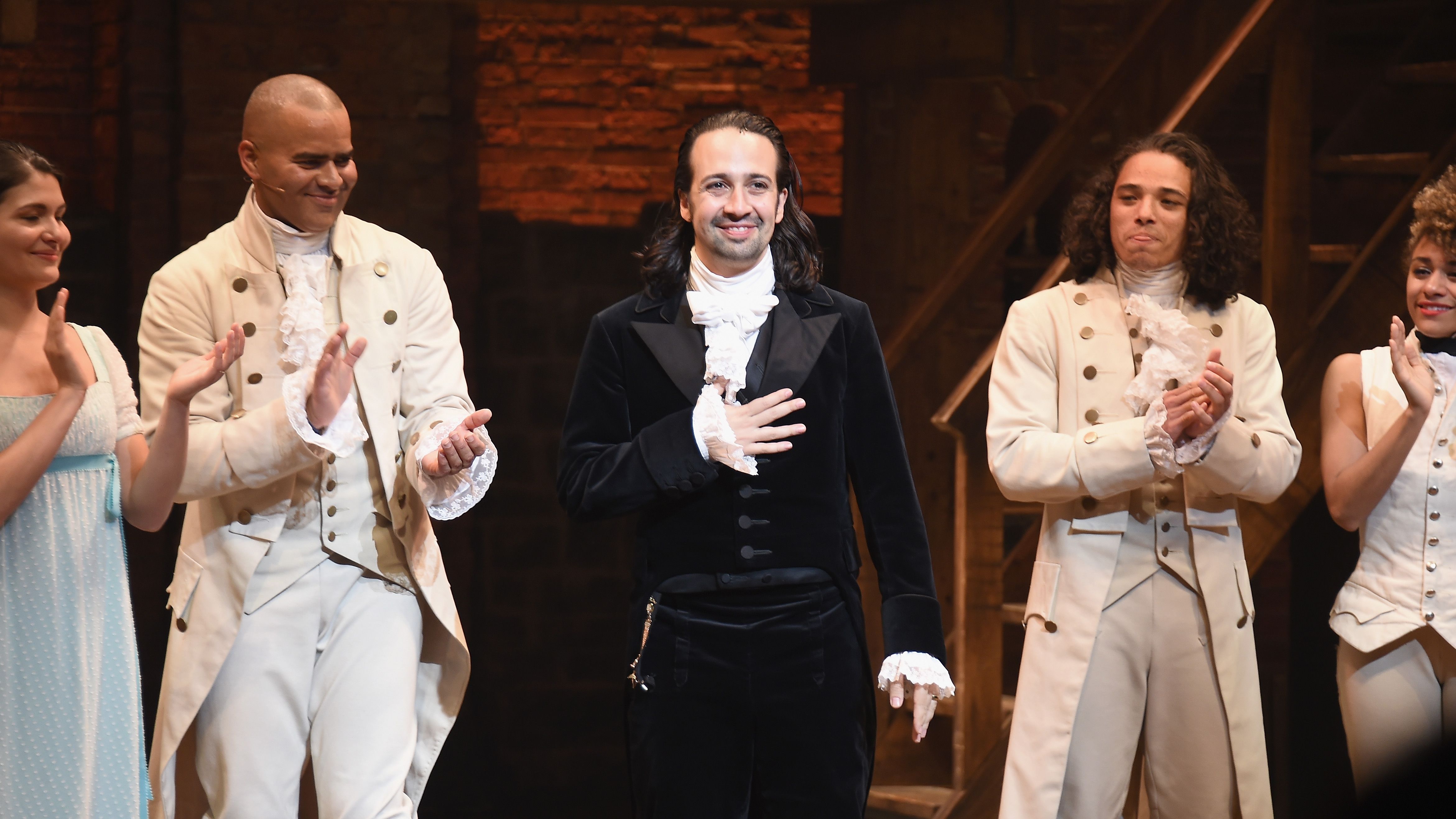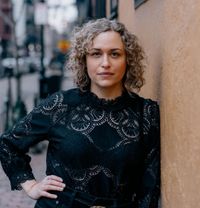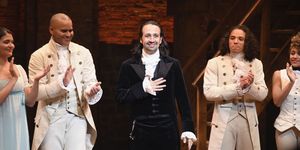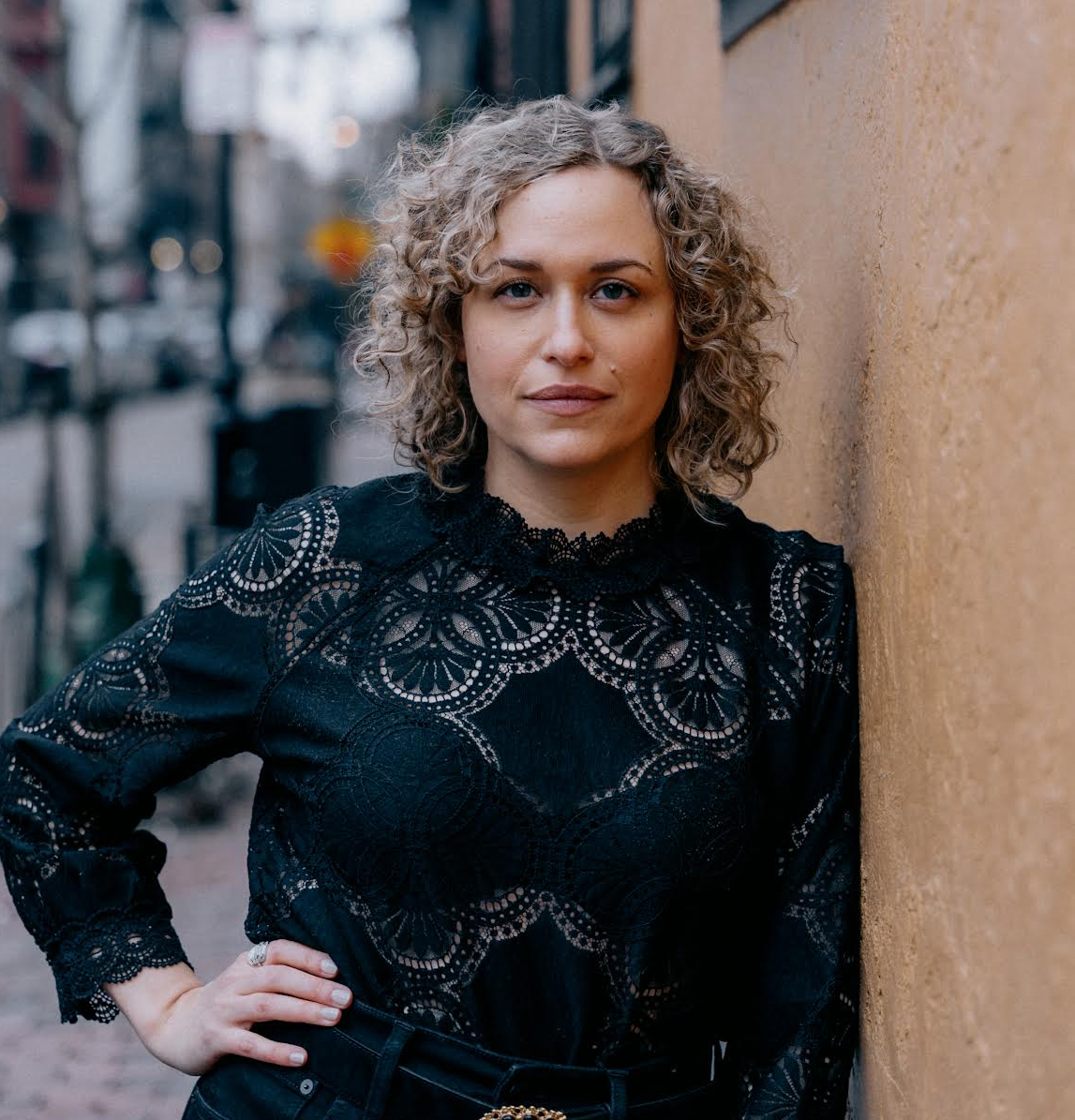The "Cancel Hamilton" Backlash, Explained
The acclaimed musical is a complex retelling of historical events.


When it came to our TV screens on July 3 via Disney+, award-winning musical Hamilton was able to reach new audiences who weren't able to see the original play. One of the most diverse musicals in Broadway history, Lin-Manuel Miranda's Hamilton cast up-and-comers like Daveed Diggs, Renée Elise Goldsberry, and Leslie Odom Jr., and re-imagined white historical figures with immensely talented actors who are Black, Indigenous, and people of color. This is—as some critics are now pointing out—the beloved musical's biggest strength, and also its biggest challenge.
The most notable argument being made: That a number of the white historical figures in the musical, including perhaps Hamilton himself, owned slaves. This is something Miranda addresses obliquely in the musical but that Hamilton doesn't fully reckon with (although, again, the recasting changes the nature of the story they're telling, so it's a complex reframing). The dialogue about that aspect of the musical began during the musical's heyday and has now been brought back into the public consciousness, especially since we are now living in a very different time: Hamilton originally came out in 2015, during the last years of the Obama presidency.
Historians, fans, and even Miranda have weighed in on the controversy.
What is the Hamilton controversy about?
The extensive New York Times FAQ is really worth your time, if you want a full explanation of all the things that Hamilton may have glossed over, chose not to cover, or changed. But a few standouts:
Filmmaker Ava DuVernay spoke candidly about Hamilton the historical figure:
Yep. Bought/owned. Believed in manumission, not abolition. Wrote violent filth about Native people. Believed in only elites holding political power and no term limits. And the banking innovation has troubled roots. That’s why I don’t look to art for my history. I study history. https://t.co/CNnjOWMnyqJuly 3, 2020
She later clarified in a comment that while Miranda chose not to centralize slavery, "he didn’t deny or ignore it either. He made his choices about it. I greatly enjoyed the work and was wildly curious after watching. I wouldn’t have studied any of those 'founders' like I did if it wasn’t for #Hamilton and @Lin_Manuel."
And that's sort of the point a number of critics have drawn—that the energy and care of the storytelling, as well as the enthusiasm and diversity at its core, mean that more people learned about the historical figures who were represented. Arguably, the musical is less about the figures and more about history:
Get exclusive access to fashion and beauty trends, hot-off-the-press celebrity news, and more.
Last word on #hamifilm - love reading fellow historians’ insightful takes & info but I never thought #hamilton was abt A Ham (or TJeff or Geo Wash) - rather it’s abt history itself - hard, elusive, contradictory & a powerful instrument. #WhoTellsYourStory https://t.co/bKjuoatk2lJuly 4, 2020
And the play itself brought opportunities for BIPOC actors, which is to be celebrated and emulated.
Lin-Manuel Miranda responded to the Hamilton controversy.
Writer and "Strong Black Legends" podcast host Tracy Clayton posted a thread in which she laid out her thoughts. The full thread is here, but a few quotes: "i really like that this conversation is happening. hamilton the play and the movie were given to us in two different worlds & our willingness to interrogate things in this way feels like a clear sign of change." She said she appreciated the criticism of a play about slaveholders that doesn't focus on slavery "but i flex the same muscle i use when i listen to hip hop as a black woman. we enjoy problematic things all the time." She explained that a second step to the play could be a nuanced discussion. "hamilton is a flawed play about flawed people written by an imperfect person that gave my flawed and imperfect little life a big boost when i needed it most, so again i know im biased...but i do appreciate the change this illustrates."
Miranda responded:
Appreciate you so much, @brokeymcpoverty. All the criticisms are valid. The sheer tonnage of complexities & failings of these people I couldn’t get. Or wrestled with but cut. I took 6 years and fit as much as I could in a 2.5 hour musical. Did my best. It’s all fair game. https://t.co/mjhU8sXS1UJuly 6, 2020
He explained that "all the criticisms are valid" and that he, too, wrestled with the immense complexity of the subject. "I took 6 years and fit as much as I could in a 2.5 hour musical. Did my best."
For more stories like this, including celebrity news, beauty and fashion advice, savvy political commentary, and fascinating features, sign up for the Marie Claire newsletter.
RELATED STORIES



Katherine’s a contributing syndications editor at Marie Claire who covers fashion, culture, and lifestyle. In her role, she writes stories that are syndicated by MSN and other outlets. She’s been a full-time freelancer for over a decade and has had roles with Cosmopolitan (where she covered lifestyle, culture, and fashion SEO content) and Bustle (where she was their movies and culture writer). She has bylines in New York Times, Parents, InStyle, Refinery29, and elsewhere. Her work has also been syndicated by ELLE, Harper’s Bazaar, Seventeen, Good Housekeeping, and Women’s Health, among others. In addition to her stories reaching millions of readers, content she's written and edited has qualified for a Bell Ringer Award and received a Communicator Award.
Katherine has a BA in English and art history from the University of Notre Dame and an MA in art business from the Sotheby's Institute of Art (with a focus on marketing/communications). She covers a wide breadth of topics: she's written about how to find the very best petite jeans, how sustainable travel has found its footing on Instagram, and what it's like to be a professional advice-giver in the modern world. Her personal essays have run the gamut from learning to dress as a queer woman to navigating food allergies as a mom. She also has deep knowledge of SEO/EATT, affiliate revenue, commerce, and social media; she regularly edits the work of other writers. She speaks at writing-related events and podcasts about freelancing and journalism, mentors students and other new writers, and consults on coursework. Currently, Katherine lives in Boston with her husband and two kids, and you can follow her on Instagram. If you're wondering about her last name, it’s “I go to dinner,” not “Her huge ego,” but she responds to both.